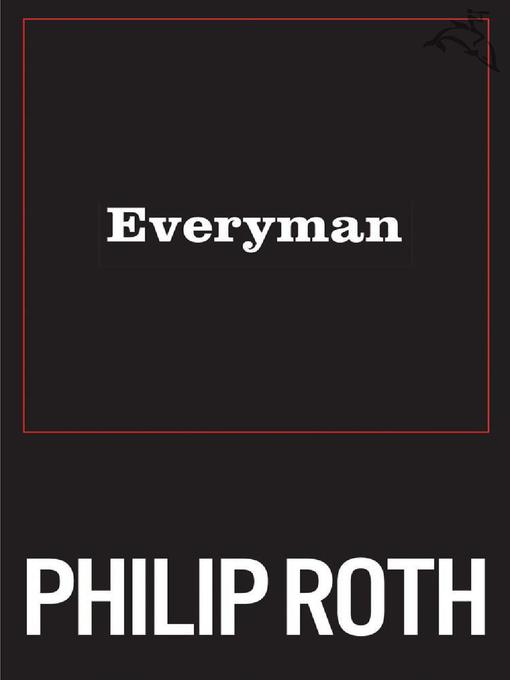
Everyman
کتاب های مرتبط
- اطلاعات
- نقد و بررسی
- دیدگاه کاربران
نقد و بررسی

Starred review from February 20, 2006
Reviewed by Sara Nelson
What is it about Philip Roth? He has published 27 books, almost all of which deal with the same topics—Jewishness, Americanness, sex, aging, family—and yet each is simultaneously familiar and new. His latest novel is a slim but dense volume about a sickly boy who grows up obsessed with his and everybody else's health, and eventually dies in his 70s, just as he always said he would. (I'm not giving anything away here; the story begins with the hero's funeral.) It might remind you of the old joke about the hypochondriac who ordered his tombstone to read: "I told you I was sick."
And yet, despite its coy title, the book is both universal and very, very specific, and Roth watchers will not be able to stop themselves from comparing the hero to Roth himself. (In most of his books, whether written in the third person or the first, a main character is a tortured Jewish guy from Newark—like Roth.) The unnamed hero here is a thrice-married adman, a father and a philanderer, a 70-something who spends his last days lamenting his lost prowess (physical and sexual), envying his healthy and beloved older brother, and refusing to apologize for his many years of bad behavior, although he palpably regrets them. Surely some wiseacre critic will note that he is Portnoy all grown up, an amalgamation of all the womanizing, sex- and death-obsessed characters Roth has written about (and been?) throughout his career.
But to obsess about the parallels between author and character is to miss the point: like all of Roth's works, even the lesser ones, this is an artful yet surprisingly readable treatise on... well, on being human and struggling and aging at the beginning of the new century. It also borrows devices from his previous works—there's a sequence about a gravedigger that's reminiscent of the glove-making passages in American Pastoral
, and many observations will remind careful readers of both Patrimony
and The Dying Animal
—and through it all, there's that Rothian voice: pained, angry, arrogant and deeply, wryly funny. Nothing escapes him, not even his own self-seriousness. "Amateurs look for inspiration; the rest of us just get up and go to work," he has his adman-turned-art-teacher opine about an annoying student. Obviously, Roth himself is a professional. (May 5)
Sara Nelson is editor-in-chief of PW.

Starred review from April 1, 2006
Much like John Updike's Harry Angstrom, the protagonist of Roth's new novel confronts the loneliness of growing old, despair over the loss of his sexual vitality, and anguish over how he has shattered the lives of those who love him. Using a splendidly unique narrative technique, our hero recounts his boyhood vigor (he swam for miles every day off the Jersey Shore), energetic sexual life (three marriages and countless affairs), affection for his daughter, and visceral shock at his body's rapid decay. Once he reaches middle age, his body begins to break down, and soon his life is measured out in yearly cuts and scrapes of the surgeon's knife. After one operation, he moves from Manhattan to a retirement community near the Jersey Shore, where his sense of alienation grows ever stronger. As the palpable pain of loneliness creeps into his bones, Roth's -Everyman - muses over his role in bringing this loss on himself ( -he had completed the decomposition of his original family; decomposing families was his specialty -) and poignantly declares that -old age isn't a battle; old age is a massacre. - This brilliant little morality play on the ways that our bodies dictate the paths our lives take is vintage Roth; essential for every fiction collection. [See Prepub Alert, "LJ" 1/06.]" -Henry L. Carrigan Jr., Lancaster, PA"
Copyright 2006 Library Journal, LLC Used with permission.

March 1, 2006
Does Roth's new novel top or even match the stunning accomplishment of his previous one, the best-selling and award-winning " The Plot against America" (2004)? It is shorter in length and narrower in scope. It is the portrait of an ordinary man--he novel's title is apt--who accomplishes nothing extraordinary. Strict chronology is set aside as various episodes from the past and the present jostle for center stage. The motif of death followed this man throughout his life, beginning in boyhood, and with the advent of middle age, the frailty of the flesh, in both sexual and physical terms, is increasingly apparent to him. Despite its shortness in length and relative narrowness in scope, this novel speaks eloquently about life's " un" fulfillments, about making adjustments if the unfolding of one's life doesn't follow the original plan. Roth continues exercising his career-defining, clear-eyed, intelligent vision of how the psychology of families works. In " The Plot against America" , we saw how a family reacts to external forces; here, the reaction is to a family's internal circumstances. Perhaps, then, more readers will find this lean, poig-nant novel more relevant to themselves.\i (Reprinted with permission of Booklist, copyright 2006, American Library Association.)

























دیدگاه کاربران